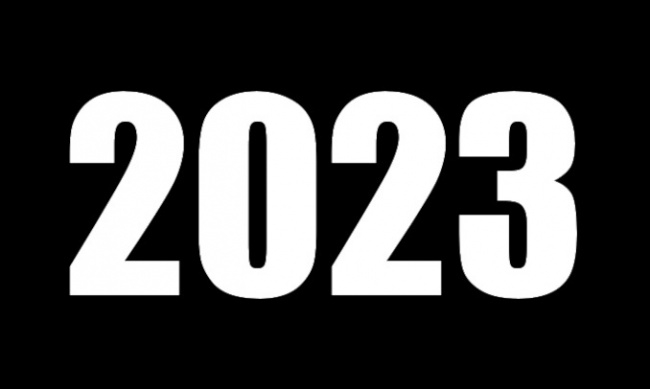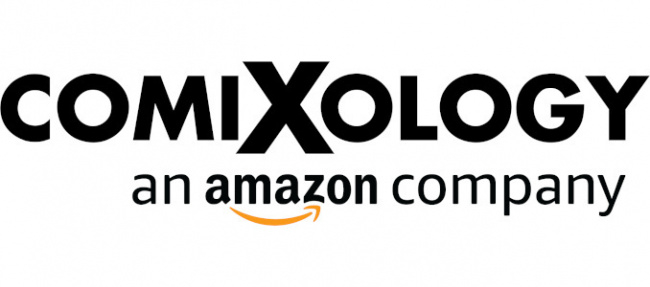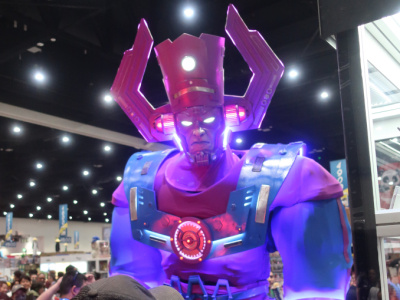2023, where have you gone? As another page of the calendar flutters into the ashbin of history, it's time for the annual retrospective of the stories that shaped our industry in the past year. Here are a few that moved the needle.
The DM moves into its next half-century facing more uncertainty than ever. For the past year we’ve been celebrating 50 years since Phil Seuling and Jonni Levas transformed the comics industry, first commercially and then creatively, by connecting fans, publishers, distributors and retailers through the direct market. But as we end the year, the typical howls of catastrophe are growing louder and more convincing than they have in over a decade, and driving a lot of fevered conversations. Sales of periodicals are sputtering, inflation and other economic ills are taking a bite out of already-thin retailers profits, and the collector market is cooling (see "Is a Post-Superhero Direct Market Even Possible?").
The glass is definitely half-empty, but also half full. Stores that can embrace the tactics of product diversification and transform themselves into destinations for next-generation fans are seeing healthy results. New publishers have entered the scene with a greater commitment to periodical publishing and direct market sales, and there have been some notable sales successes. Creators are pitching ideas, some more harebrained than others, for saving the industry. And trade groups and distributors are helping to share best practices. Will it be enough to offset a cyclical slump that feels worse than usual? That’s going to be the story of 2024.
Digital renaissance brewing. Last week Amazon formally pulled the plug on comiXology, the winner of the first round of the digital comics wars of the early 2010s. Rolling the beloved service into Kindle may not have been as dramatic a case of brand self-destruction as Twitter (sorry, X) but it felt just as arbitrary and stupid to squander the investment in goodwill that comiXology made in the industry.
However flowers are already blooming at comiXology’s gravesite. New digital platforms like Omnibus, Global Comix, Mangamo, Azuki and Manta are giving readers more choices for content, business models (subscriptions, pay-to-read, pay-to-download) and reading experiences, while giving publishers and creators more ways to reach readers (see "Startup Digital Comics Platforms Aim to Get the Market Moving Again"). And DSTLRY, founded by former comiXology execs David Steinberger and Chip Mosher, just launched their promised digital platform with a unique angle.
It is still uncertain whether digital can ever shatter the 10-15% market ceiling, but for the first time in a decade, there are more companies leaning forward.
Media meltdown or temporary blip? Between the strikes, the underperformance of tentpoles not involving fashionable dolls, nuclear scientists or kaijus, and the ongoing dramas shaking up Disney and Warner Discovery, this has not been Hollywood’s finest hour. From the comics perspective, it’s easy to point to disappointing box office results from Ant Man and the Wasp: Quantumania, The Flash, Shazam: Fury of the Gods, Blue Beetle, and Marvels as signs that long-term rot may be settling in.
However, there were bright spots. Guardians of the Galaxy Vol. 3 was a modest success, the animated Spider-Man: Across the Spider-Verse pried eyes and wallets open with its spectacular animation despite being half a movie, and comics-oriented streamers like The Boys: Gen V and Good Omens Season 2 (Amazon Prime Video), Bodies (based on a Vertigo comic, now on Netflix), plus comics-adjacent series like The Last of Us (HBO/Max), Star Trek: Strange New Worlds and Star Trek: Lower Decks (Paramount Plus), and Monarch: Legacy of Monsters (AppleTV) won high praise from viewers and fans. And who knows, maybe Aquaman 2 won’t sink straight to Davy Jones’s locker.
Either way, the narrative of 2023 is that superhero franchises are on their way out. We’ll see if the big releases of 2024 can make a dent in that.
Crowdfunding to the rescue. 2023 was another big year for crowdfunding projects. Bad Idea is crushing it on Kickstarter with Matt Kindt and Tomás Giorello’s Save Now. Colleen Doran’s adaptation of Neil Gaiman and Terry Pratchett’s Good Omens raised nearly $3 million (!!!), and various other passion projects by new and established creators are getting funded at a clip of nearly 80%.
Newish crowdfunder Zoop, with more of an exclusive comics and collectibles focus, is starting to scale up and delivered some nice results for fans of Howard Chaykin (new graphic novel Fargo), Conan the Barbarian (a new art book) and various benefit projects like Maui Strong and Comics for Ukraine.
Crowdfunding got a lot of people through the pandemic and still seems to be a core business strategy for small and mid-sized publishers. We’re also getting closer to it being well integrated with DM and bookstore distribution, so that crowdfunded projects can reach a much larger crowd.
Censorship is on the rise. I hate to end on a down note, but 2023 was one of the most chilling years in decades when it comes to censorship of comics and graphic novels. Organized efforts are underway across the U.S. and elsewhere to remove comics and other controversial content from the bookshelves of schools and libraries, and to target librarians, retailers, creators and publishers.
Censorship is a bigger problem than just comics, but comics are always on the leading edge because would-be censors don’t need to strain their precious little brains reading a lot of words: they can raise objections merely to pictures that rub them the wrong way, irrespective of context. The CBLDF had its work cut out for it in 2023, and 2024 – an election year that brings out the scolds and demagogues in force – is likely to be even worse.
That about does it for my list of big stories. Next time I’ll tackle predictions for 2024, including a scorecard for how my prognostications for 2023 panned out.
The opinions expressed in this column are solely those of the writer, and do not necessarily reflect the views of the editorial staff of ICv2.com.
Rob Salkowitz (@robsalk) is the author of Comic-Con and the Business of Pop Culture and an Eisner-Award nominee.

Column by Rob Salkowitz
Posted by Rob Salkowitz on December 18, 2023 @ 4:39 pm CT
MORE COMICS
Thursday and Early Friday
July 31, 2025
Comic-Con had a more low-key feel this year; with the streaming wars winding down and more limited release schedules from the big studios, the money spent on the show by Hollywood appeared to be declining as a result.
Marvel Art Books from Three Publishers
July 30, 2025
Three different publishers are offering Marvel-themed art books in coming months.
MORE COLUMNS
Column by Scott Thorne
July 28, 2025
This week, columnist Scott Thorne comments on the Edge of Eternities prerelease and on Magic: The Gathering news from the Hasbro earnings report.
Column by Rob Salkowitz
July 21, 2025
Columnist Rob Salkowitz lays out the Comic-Con panels of interest to industry professionals, current and aspiring creatives, educators, librarians and retailers.












